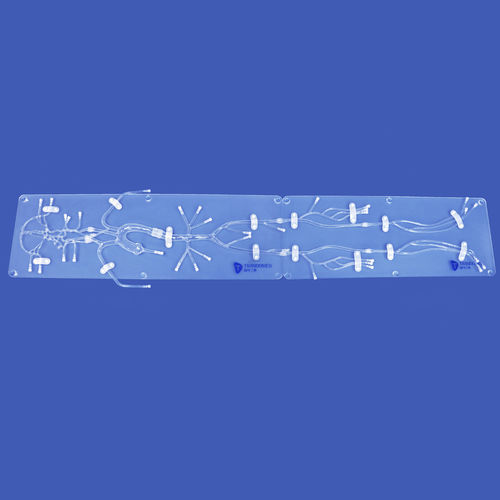
#Industry News
What are the dangers of high blood pressure?
Full Body Artery I
Cardiovascular and cerebrovascular diseases have become the number one killer of human health, and hypertension is the main culprit of cardiovascular and cerebrovascular diseases. The real harm of hypertension lies in the damage to the heart, brain, kidney and other vital organs, resulting in serious lesions, cerebrovascular accidents (stroke), angina pectoris, myocardial infarction, heart failure, renal insufficiency (serious can lead to uremia) and other fatal and disabling events.
Appropriate blood pressure level:
In young, mild patients, the blood pressure should be controlled at 120/80 MMHG. Elderly patients with hypertension should control blood pressure at 140/90mmHg. Patients with diabetes and kidney disease should control the blood pressure at 130/80mmHg.
Stable blood pressure reduction:
Why should we emphasize stable blood pressure reduction?
Uncontrolled high blood pressure can lead to "stroke", coronary heart disease, myocardial infarction and kidney failure and other diseases, and poor control, resulting in large fluctuations in blood pressure, will also produce the above harm, just like a moment of tension, a moment of release of the rubber band, will become fragile and easy to break. Studies have shown that due to the abnormal automatic regulation function of hypertensive patients, large drops and increases in blood pressure will make patients unbearable, causing brain blood supply insufficiency, hypoxia, dizziness and other symptoms. In addition, modern medicine has also confirmed: wake up in the morning is the peak period of hypertension patients with various cardiovascular accidents, if the blood pressure control during this period of time is not good, resulting in large blood pressure fluctuations, will greatly increase the risk of "stroke", and even death in serious cases. Therefore, it is important to reduce blood pressure smoothly and maintain stable blood pressure 24 hours a day.
Can you stop taking medicine after blood pressure drops?
Essential hypertension due to unknown causes, so only lifelong medication to reduce blood pressure. When the blood pressure drops to a normal level after taking antihypertensive drugs, it indicates that the antihypertensive drugs selected at this time are basically appropriate. However, it does not mean that hypertension has been "cured", so treatment should be adhered to. If the drug is stopped blindly or interrupted, the blood pressure often fluctuates greatly, but aggravates the damage of the heart, brain, kidney and blood vessels. For patients with mild hypertension (diastolic blood pressure of 95-100 mmHg), in the warm weather, especially in the summer, blood pressure without treatment to normal, can be reduced for a short period of time or stop the drug, but need to repeatedly measure pressure, timely adjustment of medication. Some antihypertensive drugs, such as clonidine, can produce a sudden rise (" rebound ") after long-term use of a large number of drugs, resulting in serious consequences. Long-term large dosage of betaloc, sudden discontinuation of the risk of myocardial infarction. Therefore, the dosage should be gradually reduced, and finally stop taking the drug or change to other drugs.





